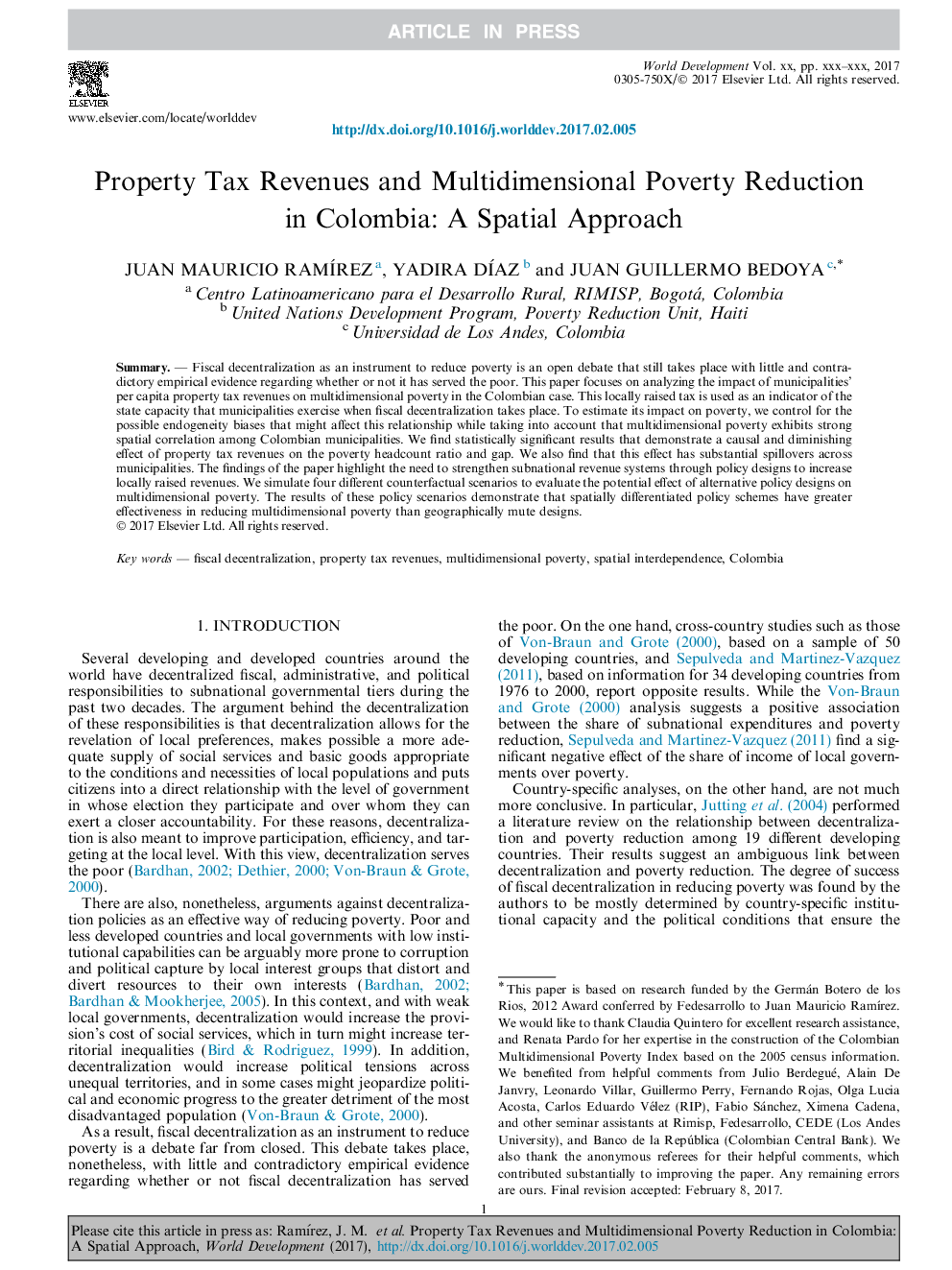ترجمه فارسی عنوان مقاله
درآمد مالیاتی ملک و کاهش فقر چندجانبه در کلمبیا: یک رویکرد فضایی
عنوان انگلیسی
Property Tax Revenues and Multidimensional Poverty Reduction in Colombia: A Spatial Approach
| کد مقاله | سال انتشار | تعداد صفحات مقاله انگلیسی |
|---|---|---|
| 129607 | 2017 | 16 صفحه PDF |
منبع

Publisher : Elsevier - Science Direct (الزویر - ساینس دایرکت)
Journal : World Development, Volume 94, June 2017, Pages 406-421
ترجمه کلمات کلیدی
تمرکززدایی مالی، درآمد مالیات بر املاک، فقر چندمرحلبی، وابستگی فضایی، کلمبیا،
کلمات کلیدی انگلیسی
fiscal decentralization; property tax revenues; multidimensional poverty; spatial interdependence; Colombia;

